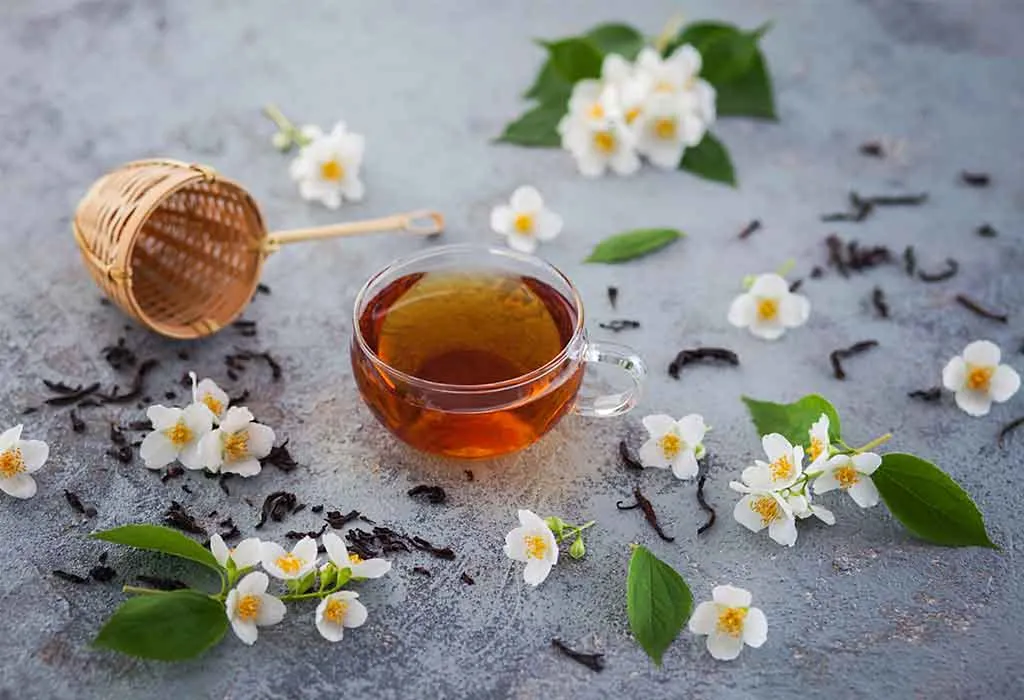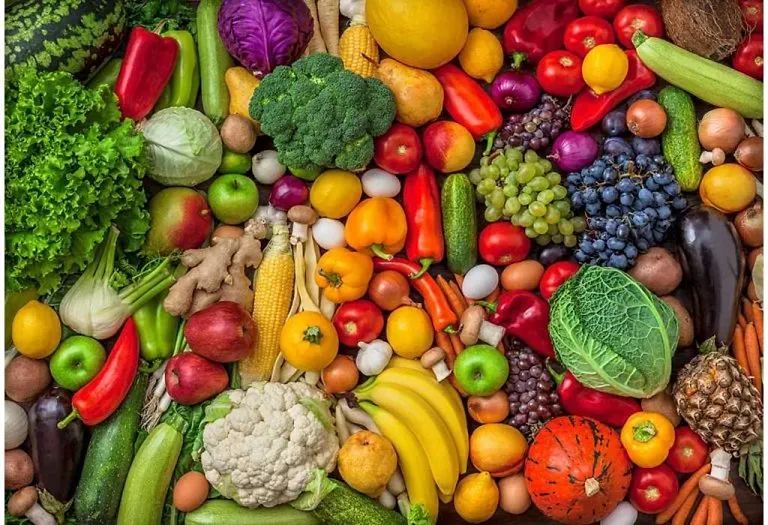Drinking Jasmine Tea When Pregnant – Is It Safe?
- What Is Jasmine Tea?
- Nutritional Profile of Jasmine Tea
- Is Jasmine Tea Safe During Pregnancy?
- Benefits of Having Jasmine Tea During Pregnancy
- Things to Keep in Mind While Drinking Jasmine Tea When Pregnant
- Alternatives to Jasmine Tea During Pregnancy
- FAQs
Many people find that the subtle scent and comforting warmth of jasmine tea are perfect for relaxing, but if you’re pregnant, you might wonder whether this aromatic beverage is safe for you and your baby. While herbal teas are often considered mild and beneficial, jasmine tea contains caffeine and certain natural ingredients that may pose unexpected risks during pregnancy. Caffeine, even in moderate amounts, can affect sleep and heart rate, while other ingredients can affect hormone levels or induce contractions. For this reason, experts recommend that jasmine tea for pregnant women be limited to moderate amounts. So, before you pour yourself a cup, let’s see what you need to know about drinking jasmine tea in pregnancy.
What Is Jasmine Tea?

Originally from China, jasmine tea is a fragrant, aromatic tea made by infusing green or black tea leaves with the scent of jasmine flowers. It is most commonly made with green tea as its base, though varieties with black or white tea bases also exist. The tea is popular not just for its taste but also for its relaxing aroma, making it a favourite for people looking to unwind.
Nutritional Profile of Jasmine Tea
Before knowing the health benefits of jasmine tea, let’s first take a look at its nutritional profile to better understand the nutrients found in it.
| Nutrients | Amount Per Cup of Jasmine Tea |
| Calories | 2-5 kcal |
| Carbohydrates | 0-1 g |
| Protein | 0 g |
| Fat | 0 g |
| Fibre | 0 g |
| Caffeine | 20-30 mg (varies) |
| Antioxidants | Various, Including EGCG and Flavonoids |
Is Jasmine Tea Safe During Pregnancy?

Now, you might be wondering, “Is jasmine tea ok for pregnancy?” Well, drinking jasmine tea during pregnancy can be safe in moderation, but there are some things to keep in mind. Jasmine tea often contains caffeine, which is present in green, black, or other teas used as the base. High caffeine intake during pregnancy has been associated with risks such as low birth weight, miscarriage, and preterm birth (1). The American College of Obstetricians and Gynecologists (ACOG) recommends limiting caffeine intake to no more than 200 mg per day (about one to two small cups of jasmine tea) during pregnancy (2).
Benefits of Having Jasmine Tea During Pregnancy
Jasmine tea is made by infusing green tea with the scent of jasmine flowers, but it generally does not contain actual jasmine petals. As a result, jasmine tea does not provide any additional benefits beyond those of regular green tea. However, drinking green tea (with or without jasmine) can provide various advantages during pregnancy, including:
- Green tea contains antioxidants like catechins, which help protect cells from damage and support overall health (3).
- The tea’s natural antioxidants may also help strengthen the immune system, especially during pregnancy, when the body’s defences are more vulnerable (4).
- Green tea has been shown to help reduce bad cholesterol (LDL) and improve blood flow, lowering the risk of heart disease and stroke (5).
- The gentle floral scent of jasmine can help reduce stress and promote relaxation, making it a natural way to unwind and support a calm mind (6).
- Jasmine tea may aid digestion, helping to reduce bloating and other mild digestive issues common during pregnancy.
Things to Keep in Mind While Drinking Jasmine Tea When Pregnant
Jasmine tea can be a comforting choice during pregnancy, but there are a few important factors to consider to ensure it’s safe for you and your baby. Here are some key points to keep in mind.
1. Limit Caffeine Consumption
Jasmine tea contains caffeine, which should be limited during pregnancy. Experts recommend keeping caffeine intake below 200 mg daily, so it’s best to track your daily caffeine from all sources to ensure you stay within this safe range (7).
2. Watch for Sensitivities
Some pregnant women experience heightened sensitivities, and jasmine’s floral scent or the tea itself can sometimes trigger nausea or stomach discomfort.
3. Opt for High-Quality, Organic Tea
Choosing high-quality, organic jasmine tea can help you avoid pesticides or additives that may be present in lower-quality teas. This can ensure that tea is purer and free from unnecessary chemicals.
4. Consult Your Doctor First
Since every pregnancy is unique, it’s always best to check with your doctor before regularly drinking jasmine tea. They can advise you based on your specific health needs.
Alternatives to Jasmine Tea During Pregnancy

If you’re looking for alternatives to jasmine tea during pregnancy, flavoured or infused water can be a great choice. You can easily create your own by adding fresh fruits like strawberries, cucumbers, or mint leaves to water, letting the natural flavours and aromas infuse. This refreshing option is a healthy, caffeine-free way to stay hydrated and can satisfy any cravings for a flavourful drink without the concerns associated with jasmine tea and pregnancy.
FAQs
1. Can jasmine tea during pregnancy’s first trimester cause miscarriage?
There is no evidence to suggest that drinking jasmine tea causes miscarriage. However, excessive caffeine intake during pregnancy has been associated with a higher risk of complications, so it’s crucial to consume it in moderation (8).
2. Is it okay to drink jasmine tea every day during pregnancy?
Drinking jasmine tea while pregnant is usually fine, daily consumption should be limited to avoid too much caffeine. It’s best to balance it with other caffeine-free drinks and maintain a healthy lifestyle.
3. Can drinking jasmine tea affect my sleep during pregnancy?
Jasmine tea is often believed to have a calming effect due to its pleasant fragrance, which some people find helps promote relaxation and improve sleep quality. When consumed in moderation, the soothing aroma and mild sedative properties of jasmine tea may contribute to a sense of calm and help prepare the body for rest (9).
4. Does jasmine tea contain caffeine?
Yes. The caffeine content depends on the tea base; green tea–based jasmine tea has less caffeine than black tea–based versions. On average, one cup has around 20-60 mg of caffeine.
As with anything, balance is key; enjoying jasmine tea during pregnancy can be a soothing treat when consumed in moderation. It can help you relax and unwind, but it’s important to keep an eye on your caffeine intake to avoid any unwanted effects. If you’re ever unsure or have specific concerns, don’t hesitate to chat with your doctor to make sure it’s the right choice for you and your baby.
Also Read:
Green Tea while Pregnant
Coffee during Pregnancy
Energy Drinks while Pregnant
Drinking Iced Tea in Pregnancy
Consuming Hibiscus while Pregnant
Was This Article Helpful?
Parenting is a huge responsibility, for you as a caregiver, but also for us as a parenting content platform. We understand that and take our responsibility of creating credible content seriously. FirstCry Parenting articles are written and published only after extensive research using factually sound references to deliver quality content that is accurate, validated by experts, and completely reliable. To understand how we go about creating content that is credible, read our editorial policy here.
1. PubMed Central – Impacts of Caffeine during Pregnancy
2. American College of Obstetricians and Gynecologists – Moderate Caffeine Consumption During Pregnancy
3. PubMed Central – Beneficial effects of green tea: a literature review
4. Journal of Nutritional & Environmental Medicine – Green tea: Health benefits
5. Harvard T.H. Chan School of Public Health – Drinking green tea is a healthy habit
7. March of Dimes – Caffeine in pregnancy
8. University of Utah Health – THE IMPACTS OF CAFFEINE ON MISCARRIAGE



































